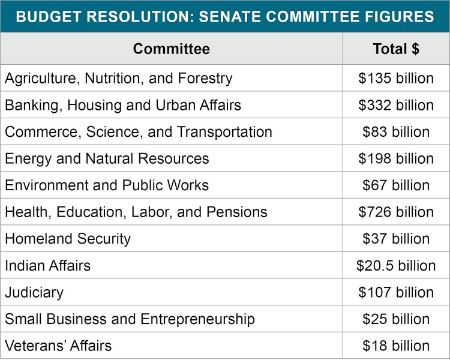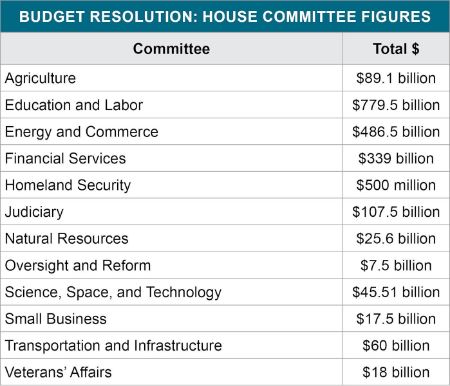For the most current information, please click here.
Baker Donelson's public policy group and the Daschle Group are pleased to provide our third update on developments regarding infrastructure legislation. This is the third update in a series of weekly alerts designed to keep you informed of the negotiations underway and the progress being made. Previous installments are available here and here.
All the Moving Parts
Infrastructure investments will likely come from three sources over the next few months: the Infrastructure Investment and Jobs Act, appropriations legislation, and a reconciliation bill.

Major Developments This Week
Infrastructure Investment and Jobs Act
The Senate passed the Infrastructure Investment and Jobs Act on Tuesday by a vote of 69-30. The votes in favor of the bill included 19 Republicans, including Leader McConnell (R-KY), signaling continued broad bipartisan support for the bill. The final bill included 13 bipartisan amendments while the Senate rejected 10 amendments. The amendments that passed are not significant alterations to the legislation.
Disagreement over amendments to require reporting requirements for cryptocurrency companies and to recoup unspent COVID funds, among others, prevented the consideration of any further amendments. House consideration remains uncertain, and House Speaker Pelosi (D-CA) has signaled that she does not want to take up the Infrastructure Investment and Jobs Act until the budget resolution, and maybe even the reconciliation bill, have passed the Senate.
Reconciliation Bill
Draft text of the budget resolution was released by Senate Budget Committee Chairman Sanders (D-VT) on Monday. The resolution tasks 12 Senate and 12 House committees to submit their various parts of the reconciliation bill's text by September 15. The agreement calls for $3.5 trillion in long-term investments to be offset by a combination of new tax revenues and health care savings. Top line allocations to Senate and House committees can be found in the table below.
In terms of infrastructure priorities, a Budget Committee document summarizing what the resolution intends to have funded includes investments in transportation, manufacturing, economic development, and coastal resiliency. Notable proposed infrastructure investments include funding for the Appalachian Regional Commission and Economic Development Administration, the creation of a Civilian Climate Corps, a Clean Electricity Payment Program, and several major investments in affordable housing programs. The text of the resolution states that upon enactment of an infrastructure bill the levels and allocations of infrastructure spending may be adjusted.


In terms of funding these investments, the Senate Finance and Ways and Means Committees have been instructed to reduce the deficit by just $1 billion over 10 years. They are left to decide how best to achieve this. The Budget Committee has highlighted corporate and international tax reform, "tax fairness for high-income individuals," IRS tax enforcement, heath care savings, and a carbon polluter import fee as suggested pay-fors. Raising the capital gains rate is an example of a likely revenue raiser that these committees will pursue. To satisfy Democrats Joe Manchin (D-WV) and Kyrsten Sinema's (D-AR) concerns about deficit spending, these committees will need to find significant pay-fors. However, the Budget Committee has also proposed that these committees invest about $1.8 trillion for working families, the elderly, and the environment through their programs of jurisdiction. Extending the Child Tax Credit and additions to Medicare programs are examples of these investments.
The Senate is currently considering the budget resolution. The motion to proceed passed on a party line vote. The Senate will soon consider several amendments to this bill in rapid succession (known as a "votearama"). These amendment votes will be non-binding "messaging" measures on funding but will likely spark intense partisan debate. The Senate will likely pass the budget resolution at the end of the week and recess for the rest of August.
The real debate on the elements of a reconciliation bill will come in the fall when the committees of jurisdiction begin the work of hammering out the details of the actual legislation. The bill will likely include items that House Democrats and the White House felt were left out of the Infrastructure Investment and Jobs Act, such as additional transit funding and clean energy programs.
Appropriations
There have been no major developments in appropriations legislation, and we do not anticipate any until September at the earliest. Consideration of the Democrat-drafted reconciliation bill will make Senate and House agreement on appropriations very challenging. Senate Democrats need at least 10 Republicans to support every appropriations bill and break any effort at a filibuster.
Additionally, with the current lack of language raising the debt ceiling in the budget resolution, Republicans and Democrats will need to agree on how to raise the debt limit in September or October. Unless this changes, any bipartisan agreement on appropriations legislation in the fall will become very difficult and the likelihood of the need for a continuing resolution to fund the government will increase. Minority Leader McConnell (R-KY) has made clear that Republicans will delay the consideration of appropriations bills in the Senate without an agreement to address the debt ceiling or to allow Republican amendments to the Reconciliation Bill.
We will continue to track developments with this legislation and will provide updates. For more information, please contact one of the authors of this alert.